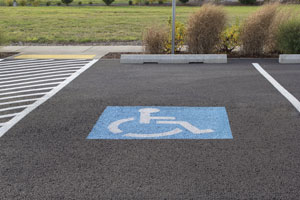When You Cannot Work Because of Injury or Illness
Obtaining Benefits through the Social Security Administration
 When you are unable to work because of injury or illness, you can look to private or employer-sponsored disability insurance. But you are not without options if you don’t have this type of coverage. Regardless of your age, if you meet the requirements, you can receive payments under a Social Security disability insurance or Supplemental Security income claim.
When you are unable to work because of injury or illness, you can look to private or employer-sponsored disability insurance. But you are not without options if you don’t have this type of coverage. Regardless of your age, if you meet the requirements, you can receive payments under a Social Security disability insurance or Supplemental Security income claim.
Qualifying for Social Security Disability Insurance (SSDI) Benefits
To be eligible for SSDI payments, you must first show that you are disabled. For purposes of eligibility, the Social Security Administration defines a disability as a condition that keeps you from being gainfully employed for at least one year. In addition, because payments for SSDI claims come from tax receipts, you must have enough “work credits” to qualify. While the number of credits generally depends on your age and when you became disabled, as a general rule, you must have worked at least some part of the five of the last ten years before your disability claim is filed.
The Benefits under an SSDI Claim
Once your application is approved, you will receive payment of benefits based on your personal earnings record, with average payments ranging from $1,000 to $1,400. For the first two years during which you receive benefits, you may be eligible for Medicaid, based on your total income. However, after two years, you will automatically qualify for Medicare, regardless of how old you are.
Supplemental Security Income (SSI)
The Social Security Administration operates the SSI program as well, but it’s based primarily on financial need, and is generally funded in a cooperative program between state and federal government. To qualify under the federal guidelines, you must:
- Be blind, disabled or over the age of 65
- Be a citizen of the United States or meet strict requirements related to permanent residence, asylum or refugee status
- Fall below the income guidelines
- Own a minimal amount of property
Contact Us
At Taylor & Boguski, we bring more than 70 years of combined legal experience to injured people throughout New Jersey. For a free initial consultation, contact our office online or call us at 856-234-2233.


 As in all states, when you suffer a workplace injury in New Jersey, you have a right to pursue benefits under the state’s workers’ compensation laws. You must notify your employer in a timely manner, and you must submit to a physical examination from a doctor chosen by your employer. If your claim is approved, though, you may be entitled to receive a broad range of benefits.
As in all states, when you suffer a workplace injury in New Jersey, you have a right to pursue benefits under the state’s workers’ compensation laws. You must notify your employer in a timely manner, and you must submit to a physical examination from a doctor chosen by your employer. If your claim is approved, though, you may be entitled to receive a broad range of benefits. Though New Jersey courts are generally less inclined now to grant alimony or spousal support in divorce proceeding than in years past, either party to a divorce may still pursue compensation after a marital breakup. When a party to divorce requests alimony, the court will consider a number of factors to determine whether the petition has merit. The court may grant permanent support, order payments for a specific period of time, or require a party to pay support until the ex-spouse can take care of his or her own needs.
Though New Jersey courts are generally less inclined now to grant alimony or spousal support in divorce proceeding than in years past, either party to a divorce may still pursue compensation after a marital breakup. When a party to divorce requests alimony, the court will consider a number of factors to determine whether the petition has merit. The court may grant permanent support, order payments for a specific period of time, or require a party to pay support until the ex-spouse can take care of his or her own needs.